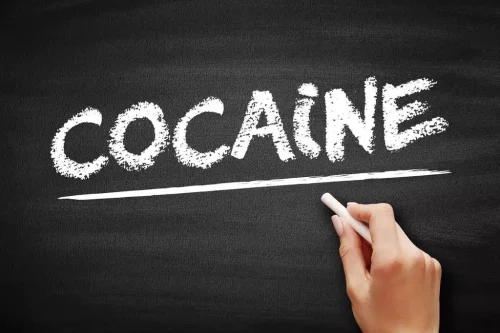
We offer specialized detox and rehab programs to suit whatever your unique needs may be and to make recovery as comfortable and successful as possible. We are located in stunning Provo, Utah, and have a full range of recovery programs and addiction resources. Termination is the final and most controversial stage in alcohol recovery.
Alcohol Use Disorder: What Is Recovery?

By identifying healthy ways to manage stress, individuals can avoid reverting to alcohol as a means of escape. Once the need for change is acknowledged, the next step is accepting the reality of addiction. Acceptance involves understanding that alcohol addiction is a chronic disease that requires professional help and support to overcome. It requires individuals to let go of any notion of control over their drinking and recognize that they need assistance to break free from the cycle of addiction. For many, the action stage is both physically and mentally taxing — and individuals at this stage face a risk of alcohol relapse. The action stage typically lasts from three to six months and sometimes as long as 18 months, but it does not mark the end of the recovery process.
Alcohol Withdrawal Symptoms, Detox, Timeline, and Treatment
Medical professionals can provide the necessary support and interventions to ensure the safety and well-being of the individual throughout the detoxification process. During the detoxification stage, medical professionals closely monitor individuals to ensure their safety and to manage any complications that may arise during withdrawal. Medications may be prescribed to help alleviate withdrawal symptoms, reduce cravings, and prevent potentially dangerous complications. The detoxification process can last from a few days to a couple of weeks, depending on the individual’s specific circumstances. Recognizing the problem and accepting the need for help are the foundational steps in alcohol rehabilitation.
- When a person goes into treatment, it isn’t just a case of fixing the problem person.
- Recovery isn’t a straight line – it’s more like a winding path with ups and downs.
- The point of detox is to make sure that you can get through the withdrawal symptoms without experiencing too many adverse side effects.
- Recovery involves rebuilding a life— returning to wellness and becoming a functioning member of society.
- Some common signs and symptoms of cirrhosis include fatigue, itchy skin, weight loss, nausea, yellow eyes and skin, abdominal pain and swelling or bruising.
- During this stage, individuals may also explore different treatment options, such as outpatient programs, inpatient rehabilitation, or support groups.
What is the third stage of alcohol withdrawal typically characterized by?

It’s important to remember that detoxification is just the initial step in the overall process of alcohol rehabilitation. After completing detoxification, individuals can progress to the next stages of rehabilitation, where they can address underlying issues and develop strategies for long-term stages of alcoholic recovery recovery. Other research pinpoints the values of cognitive behavioral therapy for relapse prevention, as it helps people change negative thinking patterns and develop good coping skills. Research and clinical experience have identified a number of factors that promote recovery.
- The detoxification process can last from a few days to a couple of weeks, depending on the individual’s specific circumstances.
- Such triggers are especially potent in the first 90 days of recovery, when most relapse occurs, before the brain has had time to relearn to respond to other rewards and rewire itself to do so.
- Another widely applied benchmark of recovery is the cessation of negative effects on oneself or any aspect of life.
FAQ’s About Alcohol Detox and Withdrawal
It encourages members to make sobriety the top priority in their lives and take whatever steps they need to stay on the path to recovery. While participating in the 12 steps of recovery can be beneficial for many people, consider the advantages and disadvantages of these programs before you decide if this approach https://ecosoberhouse.com/ is right for you. Believing in this higher power may help someone find meaning in their life outside of addiction. For instance, they may find a greater sense of community by joining a spiritual or religious group. These can be healthy coping mechanisms someone turns to as they progress through recovery.
- Challenges at this stage of treatment include cravings, social pressure to drink, and high-risk situations that can trigger alcohol consumption.
- With excessive alcohol consumption, this important organ can’t metabolize Vitamin D, which could develop into a deficiency.
- Surrounding oneself with understanding and supportive friends, family, or support groups can provide encouragement, accountability, and a sense of belonging.
- In 2021, researchers estimated nearly 30 million people ages 12 years and older in the United States had alcohol use disorder (AUD).
- While recovery from alcoholism can take weeks, months or even years, most people progress through six stages of change as they overcome an alcohol addiction.
- If you started in a residential treatment program, you will now move to the continuing or follow-up counseling phase of your rehab program on an outpatient basis.
- Alcohol withdrawal can take some time and is potentially life-threatening, so it is advised to detox somewhere with medical supervision, like a treatment center.
How long does the acute phase of alcohol detox typically last?

Start Your Recovery with Granite
- Medical professionals can provide the necessary support and interventions to ensure the safety and well-being of the individual throughout the detoxification process.
- If you’re on this journey yourself, or supporting someone who is, remember that help is available at every stage.
- They are rationalizing, denying, and hiding their abusive behavior, although they are currently experiencing the negative impact of their addiction.
- The alcoholic may begin to tell friends and family about their plans to change, although they are still drinking.
Press Play for Advice On Finding Help for Alcohol Addiction


